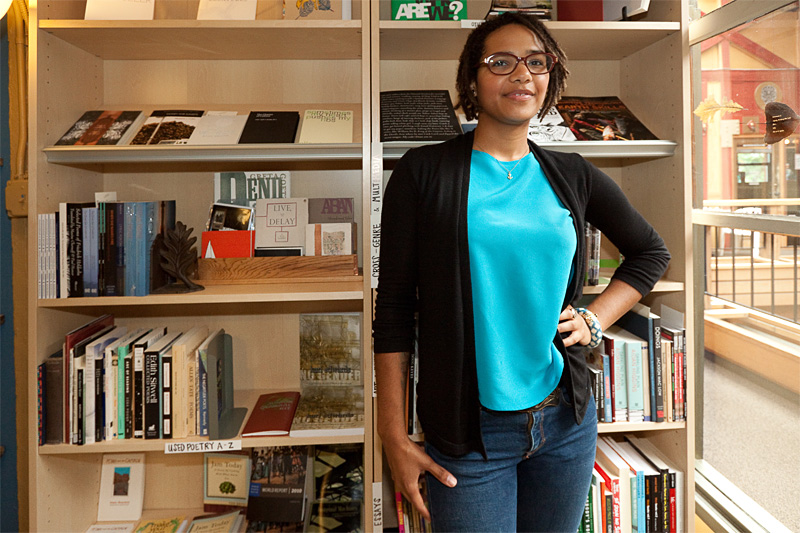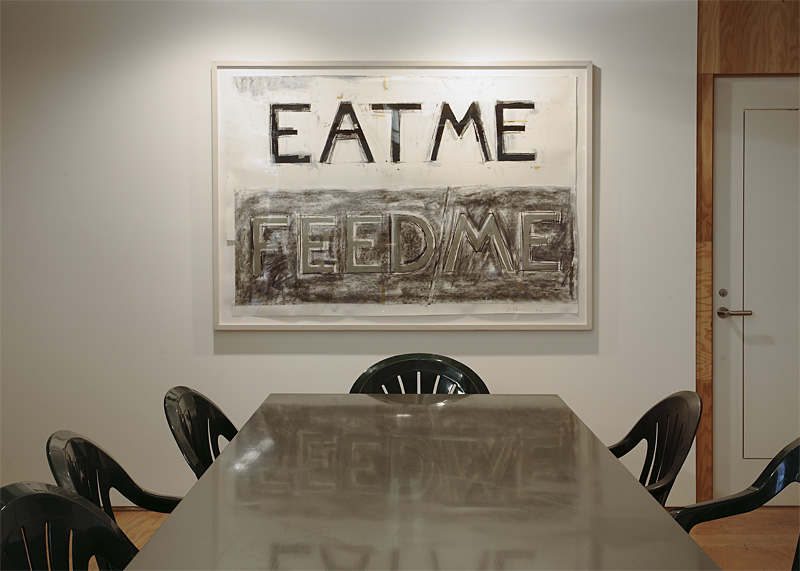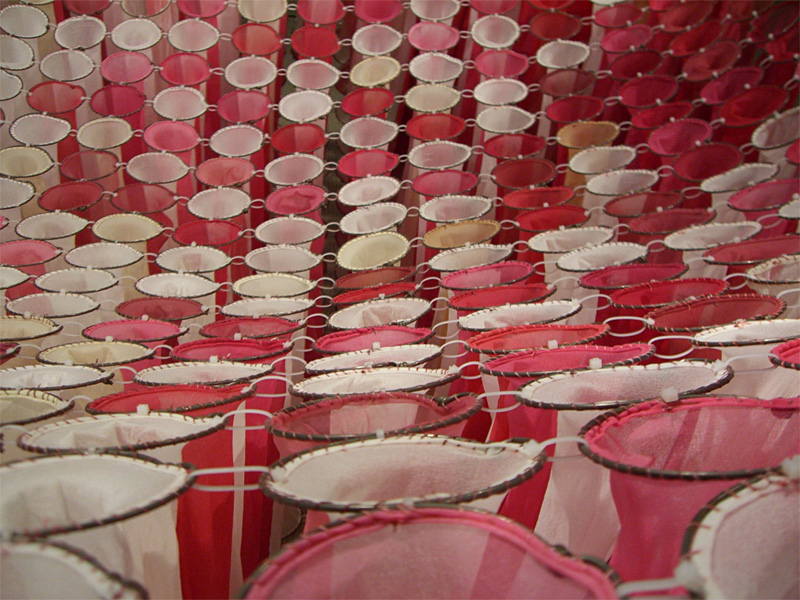Photo by Adriana GrantCormac Mahoney is the man behind this summer’s pop-up restaurant sensation, Tako Truk, which served delicious, spicy tacos after hours, out of the 14 Carrot Cafe kitchen, in Eastlake. He’s holding a fundraiser for Haiti this weekend, and is hoping to build Tako Truk as a sort of mobile-consulting business, offering his services, and hopefully providing great bar food, and/or teaching bartenders how to make great food, in tiny kitchens all over Seattle. Here is the first in a three-part series, talking with Mahoney about how food fits into his life.SW: Tell me a little but about you, about your culinary background.Mahoney: Well, I am self-taught, and by self-taught I meant I didn’t go to school. I learned from those around me and above me. I grew up on a farm and pretty much everyone cooked. We butchered our own. My grandfather was a big man, a big man all around. We butchered our own cows. (His butcher table is my desk now; it’s one of the most beautiful pieces of history.) It was very Middle America, very rural. One of the first things I complemented an aunt on was her taco salad, which was taco filling and chips and lettuce. The classic 1981 Bon Appetite. [I] grew up around gardens, grew up around animals, grew up eating, just a typical farm: meat and potatoes. The first culinary accomplishment I had in my life was (I think I was about ten) eating ten pounds of mashed potatoes one day. My grandma and I still laugh about it. It was a hard day of work, and I just kept eating. I am the skinniest one in my family. My dad’s is 6’2″ and his working weight was 250. My grandfather had the biggest hands I’d ever seen in my life. And it was just one of those things where you worked 12-13-14 hours a day. You’d get up at six in the morning, and technically you’d be done at six at night, but then you’d get the call at nine o’clock that that the cows had gotten out and were on the road. I grew up not having the typical (I don’t even like the word typical)… You were always at work, and you were always living, but there was never this… I think that’s why I am adapted to the restaurant scene so well. You’re just on. People who try to fit an eight hour work day – I mean I understand, I love, it, I think it’s great – but there is a difference between working for somebody, and working for something that you love to do, even if you are working for somebody.What do I want people to know about me? I eat everything. And I cook everything. I am 37, Jeezus, and I grew up eating Chinese food and Mexican food and when I got to Seattle all of a sudden there was Thai food and African and Middle Eastern and Indian. So culinarily, it’s a really weird time to grow up. I just did this dinner over in Bellevue with Michael Hebb that he titled, If my table were more like a boat, at Open Satellite. This was the first one, the planning meeting. It really made sense, because this is how a lot of people travel. If you can’t hop on a plane, you can travel by your table. You roll up to The Ave. and starting at the north end, starting at Brazil and then you get to Iran – the Caspian Grill, it’s really good – and then you get to Cuba, though I hear the Mojito Cafe just went out of business, though they are maintaining on Lake City Way, and then there’s the really good Mandarin Chef, husband and wife, a true mom and pop. They are hand-making the dumplings, hand-making the noodles. And Pam’s, getting the Trini. Pam and Anton, they’re adorable, and that food is some of the best food in Seattle. I have never been there and been like, “Ew, You guys are kind of off tonight.” Ever. So that’s what’s really informed my cooking is Seattle’s real restaurant scene, not just the rarified. I have been lucky enough to work in the rarified area, at Tom Douglas restaurants. And I was at Sitka for two of the three years it was open. Started out as just helping, I was the lunch guy, and then sous chef, and they shortly after Matt [Dillon] decided to open Corson, and that’s when I, all of a sudden, pretty much had a restaurant on my hands. Check back tomorrow for more of our conversation with Cormac, including his hi-brow/low-brow restaurant recommendations, as well as straight talk about the industrialized food industry.
More Stories From This Author
For 50 years, Zeke’s off US 2 has served delicious burgers
It’s been a popular pit stop in Gold Bar for skiers and hikers, and the same family still runs it.
By
Evan Thompson • June 6, 2019 11:05 am
With ‘Game of Thrones’ ending, it’s time for a proper feast
How to make a meal inspired by the Lannisters’ and Starks’ world, fit for the King in the North.
By
Ben Watanabe • May 15, 2019 1:30 am
Stash Box: 2016-2019
Time to roll one for the road …
By
Meagan Angus • February 26, 2019 3:15 pm







